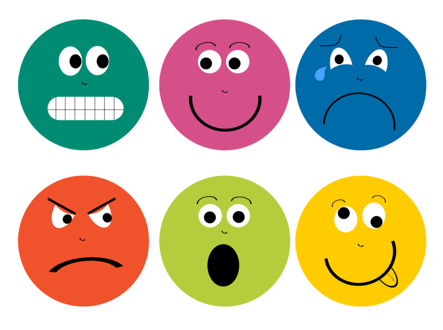514.223.5327
MAKE AN APPOINTMENTManaging your Emotions
Generally, people try to increase the experience of pleasurable emotions such as joy, happiness, excitement, and hope and have a tendency to try to avoid or distract from painful emotions, such as anger, sadness, loss, and disappointment. However, part of being human is to experience a spectrum of emotions which ranges from pleasurable to painful without remaining stuck or overwhelmed in any one emotional state. When the painful emotions feel threatening or overwhelming to a person, it can seem safer to distract or numb the emotions by engaging in avoidant behaviors. These behaviors might include technology addiction, self-harming behaviors, alcohol and substance use, or overeating habits. In order to be able to tolerate our emotional experiences, we need to begin to understand our emotions first. Emotion regulation encompasses a set of skills which you can learn to use in order to increase your tolerance for emotional distress in moments where your anxieties, fears, and other painful emotions are amplified. The key to emotion regulation is developing the ability to be flexible in how you respond to situations that trigger intense or painful feelings.
1- Understanding Emotions: Learn to pause, step back, and reflect on your emotional experience in the moment to begin can to observe what has led to the change in your feelings. The purpose of becoming mindful in your observation is not to judge or change the emotions but to practice increasing awareness of the triggers which led to the emotional shift, the underlying thoughts /messages which you might be telling yourself about a given situation, and to begin to identify any physiological changes within your body associated with the feelings you are having.
2- Radical Acceptance: Part of developing distress tolerance involves learning to accept our emotions when they arise. When referring to “acceptance”, this does not mean “approval” of a situation that might be harmful or upsetting, nor does it mean that we like what is occurring. It simply means that we accept the situation, emotion, or experience as it is without trying to alter it or escape it.
3- Learning New Responses: Over time, we all tend to develop deeply ingrained reactions to situations that are stressful. One strategy to practice in order to develop healthier coping is to intentionally respond in a way that is the opposite of how you would typically respond. For example, if you are feeling angry at someone and you would typically raise your voice and confront the other person in the heat of the moment, then you would pause, take a deep breath, and mindfully respond in a soft or quiet voice instead. This will take time and practice as you begin to unlearn your old patterns of emotional reactivity.
4- Creating Positive Experiences: Actively focusing your thoughts on positive things in your life and establishing healthy lifestyle habits will enhance your ability to experience more positive emotions as well as to manage the more painful ones better. Engaging in activities that you enjoy and spending time with people you care about is one example of how you can increase opportunities for joyful moments. Eating well, exercising regularly, and practicing regular self-care such as cultivating gratitude also supports you in developing healthier coping strategies for your mind and your body.
If you or someone you know is struggling with managing their emotions and would like support in developing healthier coping skills, please call us at 514 223 5327.
Written by Marianne Chivi, M.A., C.O.

